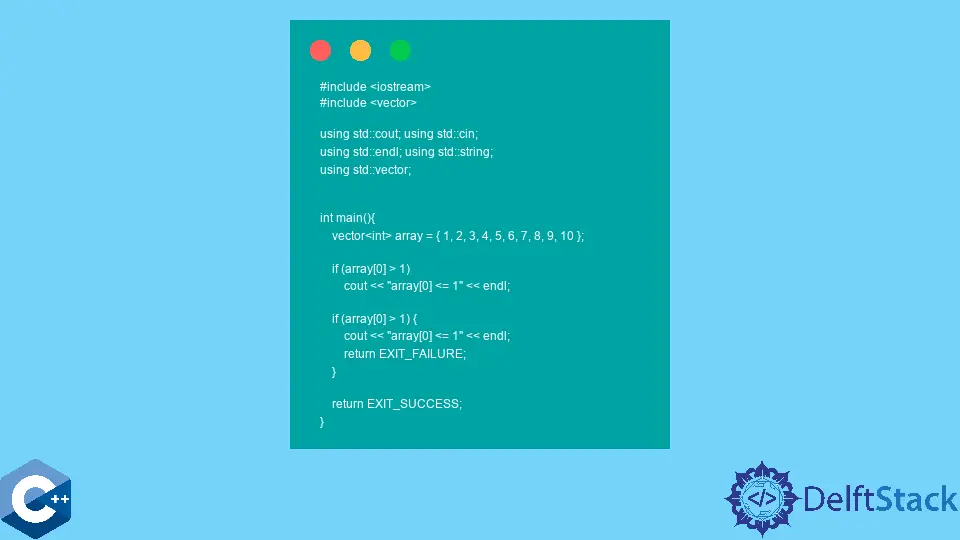在 C++ 中使用嵌套的 if-else 语句
Jinku Hu
2023年10月12日
C++
C++ Statement

本文将解释几种在 C++ 中如何使用嵌套 if-else 语句的方法。
在 C++ 中使用单一的 if-else 语句来实现条件语句
C++ 语言提供了两种语句来实现条件执行。一个是 if 语句-根据条件分支控制流,另一个是 switch 语句,该语句对表达式进行求值以选择可能的执行路径之一。if 语句可以表示为单个条件,也可以构造为控制不同执行路径的多步语句。请注意,当单个语句符合条件时,可以在不使用大括号 {} 的情况下编写语句来区分块范围。
#include <iostream>
#include <vector>
using std::cin;
using std::cout;
using std::endl;
using std::string;
using std::vector;
int main() {
vector<int> array = {1, 2, 3, 4, 5, 6, 7, 8, 9, 10};
if (array[0] > 1) cout << "array[0] <= 1" << endl;
if (array[0] > 1) {
cout << "array[0] <= 1" << endl;
return EXIT_FAILURE;
}
return EXIT_SUCCESS;
}
使用嵌套的 if-else 语句在 C++ 中实现多条件程序控制流
或者,可以将嵌套的 if-else 语句彼此链接在一起,以实现复杂的条件控制流。请注意,缺少给定的 if-else 大括号表示该块将无条件执行。当嵌套多个 if 语句并且并非所有 if 条件在同一级别具有相应的 else 块时,后一种情况最有可能。为避免此类问题,应尝试强制使用大括号样式或使用某些特定于 IDE 的工具来检测代码中的此类问题。
#include <iostream>
#include <vector>
using std::cin;
using std::cout;
using std::endl;
using std::string;
using std::vector;
int main() {
vector<int> array = {1, 2, 3, 4, 5, 6, 7, 8, 9, 10};
if (array[4] > array[3]) {
cout << "array[4] > array[3]" << endl;
if (array[4] > array[5])
cout << "array[4] > array[5]" << endl;
else
cout << "array[4] <= array[5]" << endl;
}
if (array[4] > array[3]) {
cout << "array[4] > array[3]" << endl;
if (array[4] > array[5])
cout << "array[4] > array[5]" << endl;
else if (array[4] > array[6])
cout << "array[4] > array[6]" << endl;
else if (array[4] < array[5])
cout << "array[4] < array[5]" << endl;
else
cout << "array[4] == array[5]" << endl;
}
return EXIT_SUCCESS;
}
输出:
array[4] > array[3]
array[4] <= array[5]
array[4] > array[3]
array[4] < array[5]
Enjoying our tutorials? Subscribe to DelftStack on YouTube to support us in creating more high-quality video guides. Subscribe
作者: Jinku Hu
